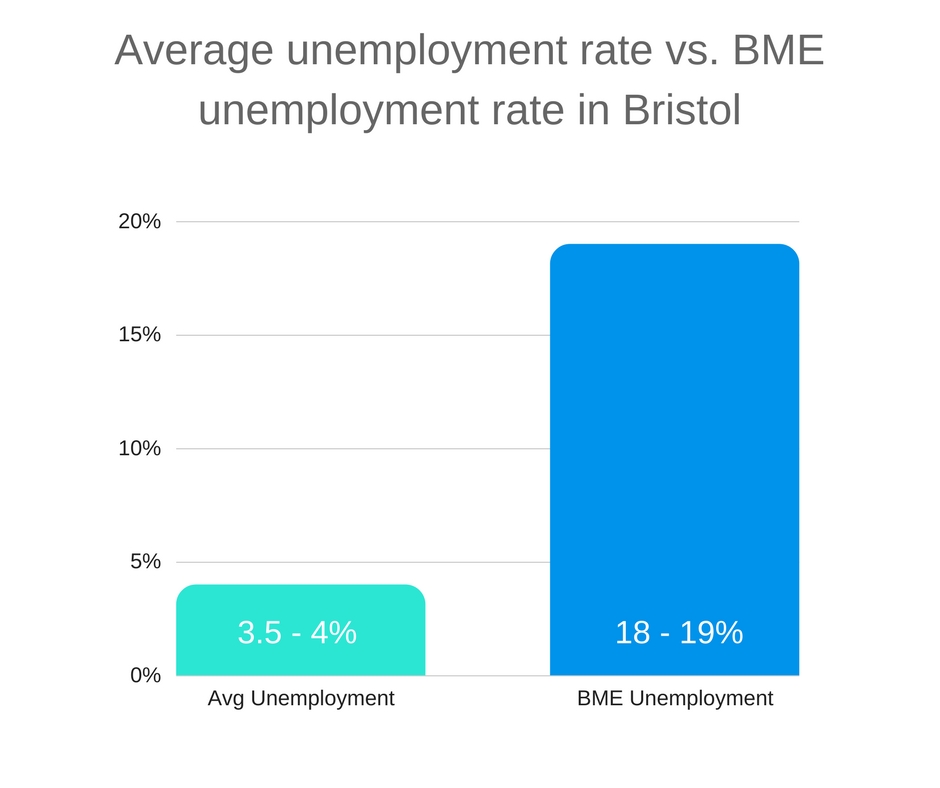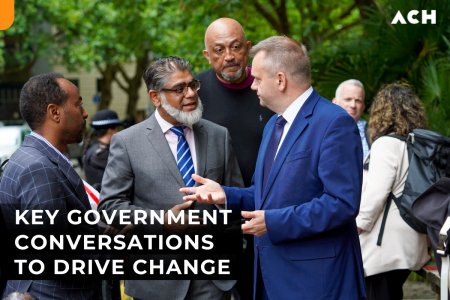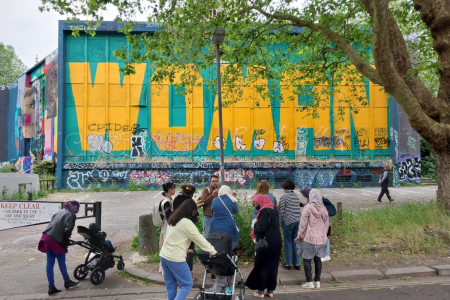
Is economic inclusion possible in a racially segregated city?
BME communities in Bristol are at a disadvantage in terms of economic inclusion. The local community can change this by looking at the systems that created this issue and altering the way they do things. ACH's #rethinkingrefugee campaign encompasses these values.
Bristol has won its fair share of accolades for its diversity and stunning scenery. The Sunday Times Best Places to Live Guide regards it as the best place to live in the UK. Bristol does well with its immediate economy and catering to the happiness of its residents. However, behind these accolades and positive media attention lies some shocking truths.
Whilst the average unemployment rate in Bristol stands at 3.5% - 4%, the Centre on Dynamics of Ethnicity found that unemployment amongst the African and Caribbean population fluctuates between 18%-19%. The figures show many BME either unemployed or in low-skilled manual labour jobs, clear signs of racial segregation in regard to unemployment across the city.
Ultimately, this imbalance hurts all parties. Inclusion of BME in the business supply chain pays-off, because they gain access to untapped markets. This generates profit from the business that is done there. Individuals amongst these communities gain a reputable and well-paid job, while businesses gain a diverse workforce. Ultimately, a symbiotic relationship is created where businesses and communities begin to need one another to thrive.
Education can act as an inhibitor to achieving this mutually thriving relationship. Sending BME children to underperforming schools results in a negative outlook on education and generates low performance. The 2017 Ofsted reports showed that some primary schools in Bristol failed to meet the minimum standards in education.
Two schools in the BS5 area alone were required to make drastic improvements, whilst one school was deemed inadequate.

The census concluded that black African young people are persistently disadvantaged in education compared to their white peers. By raising the standard of education and making it inclusive, BME will achieve the necessary qualifications to propel them into the workforce.
Whilst improving the inclusiveness of education will help, there also needs to be inclusivity in employment practices for this to make a difference to the BME unemployment rate across the city.
Part of the problem still lies with the recession of 2008, which hit the economy hard, making jobs scarce and the job market more competitive. However, part of the problem lies in the prejudices that exists around employment practices. Many companies seek to hire from communities in Eastern Europe with relationships long since established.
Whilst it is deemed acceptable to hire Eastern European workers, the same sentiment is not extended to BME and refugee workers; a double standard that corporations should begin to analyse and resolve.
With a post-Brexit world looking uncertain, many skilled labourers from Eastern Europe are choosing to migrate and work in countries like Germany. They cite that they feel more accepted and valued amongst other EU countries, a sentiment they feel no longer exists in Britain. This provides an opportunity for businesses to branch out from the norm and hire amongst BME.
Bristol businesses see the value migrant workers bring to their businesses. Employers are already accustomed to hiring workers from a different background, therefore hiring amongst BME would not be a drastic leap. They would prove to be assets to any company by bringing a wealth of unique knowledge, increasing business revenues and the overall GDP of the country. This small step would greatly aid towards the economic inclusion of BME.
Ultimately, the narrative in this instance is not how disadvantaged BME communities are, or our perceived duty to ‘save’ them. Instead, it is how valuable BME can be in professional and high tiered jobs. As we will inevitably lose out on skilled workers from the EU, we should look to our own in filling that gap.
ACH acts on this as part of the economic inclusion strand of its #rethinkingrefugee program, helping those with degree qualification progress in their professional career through the hard work of our training and support teams.


